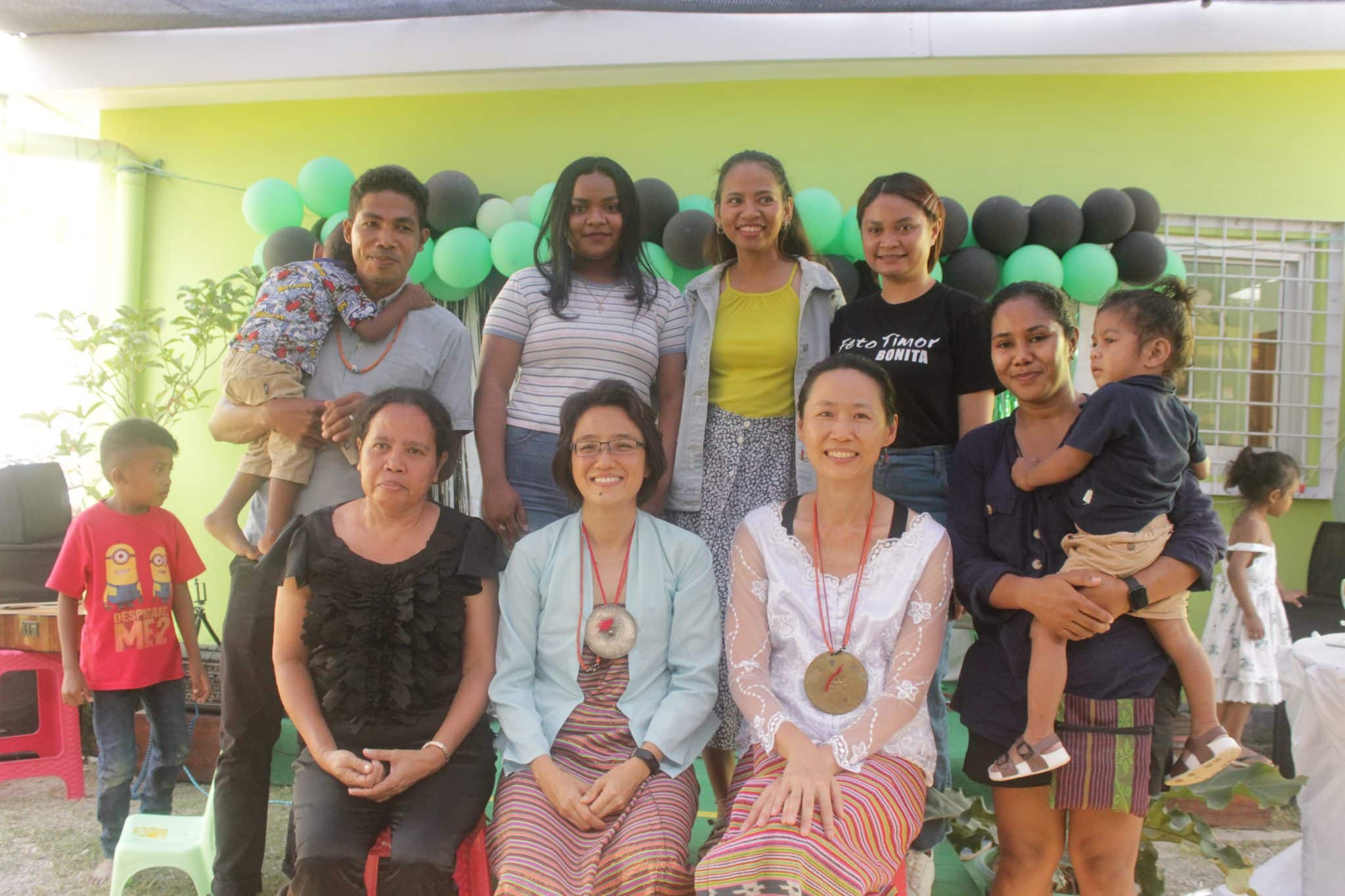Businesses for good: Restoring beauty, bringing hope to coastal Japan
by Rachel Phua // July 1, 2019, 6:08 pm
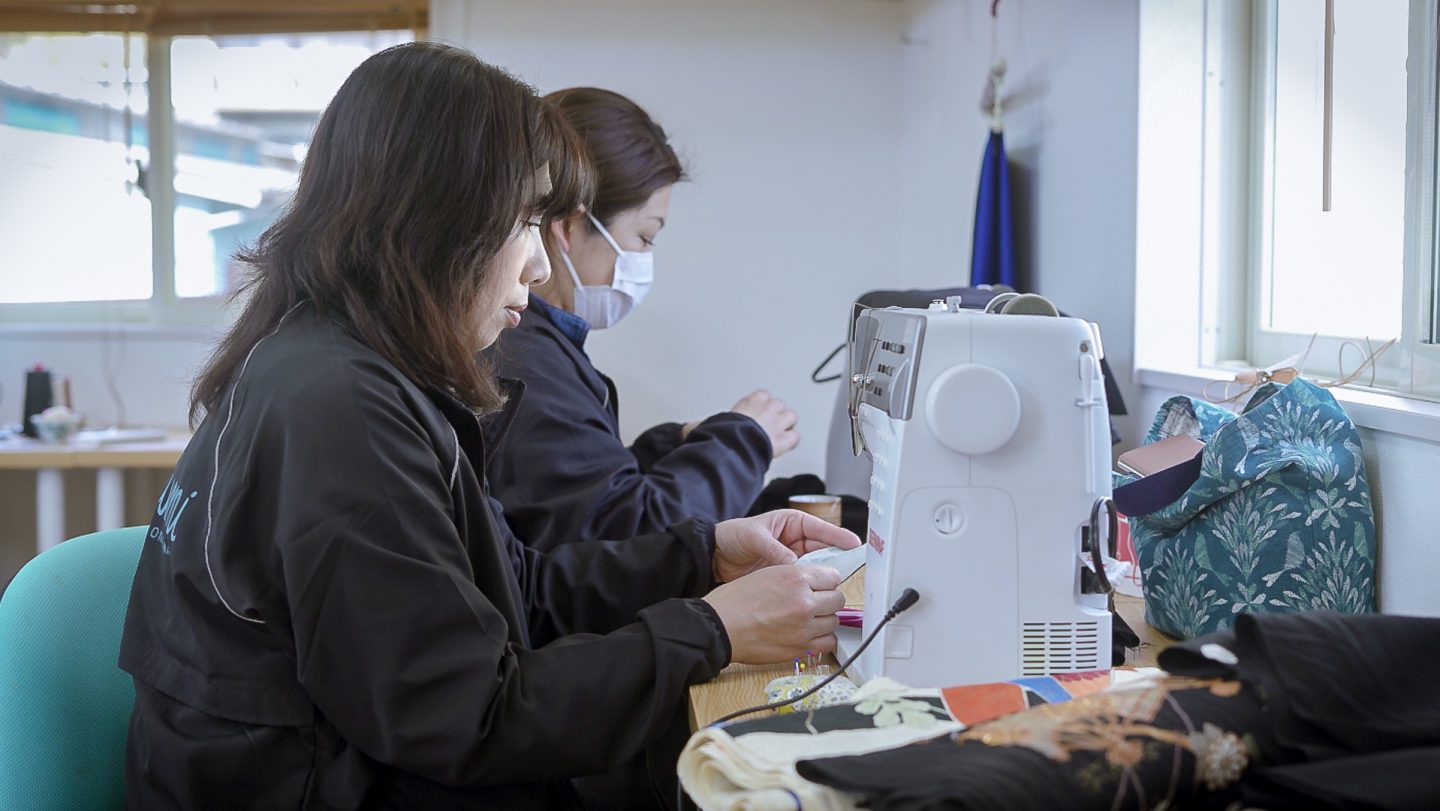
Nozomi Project and Megumi Project were both set up by Christians after the March 2011 disaster in Japan to help women affected by providing them a sustainable income and community. All photos by Rachel Phua unless stated otherwise.
It was unimaginable for Sue Plumb Takamoto to be sitting across from Akie Abe, wife of Shinzō Abe. They were at lunch, where American Takamoto was describing to the First Lady of Japan her decision to move from Kobe up to Ishinomaki, 50km east of Sendai in Miyagi prefecture.
Takamoto moved to the small seaside city in March 2012, a year after the 3.11 earthquake and tsunami razed entire neighbourhoods along the Tohoku coastline.
The city was one of the hardest hit by the disaster, which left over 3,500 dead and another 420 people unaccounted for. Its population of more than 160,000 plummeted by nearly 10,000 immediately after, and has been steadily declining since.
Takamoto, an American missionary from Asian Access, relocated her family north after she sensed a call to plant herself in the city. She was reluctant at first. It was no place for a family with young kids – nearly half of the city was gutted by waves of up to 10 metres high that faithful day.
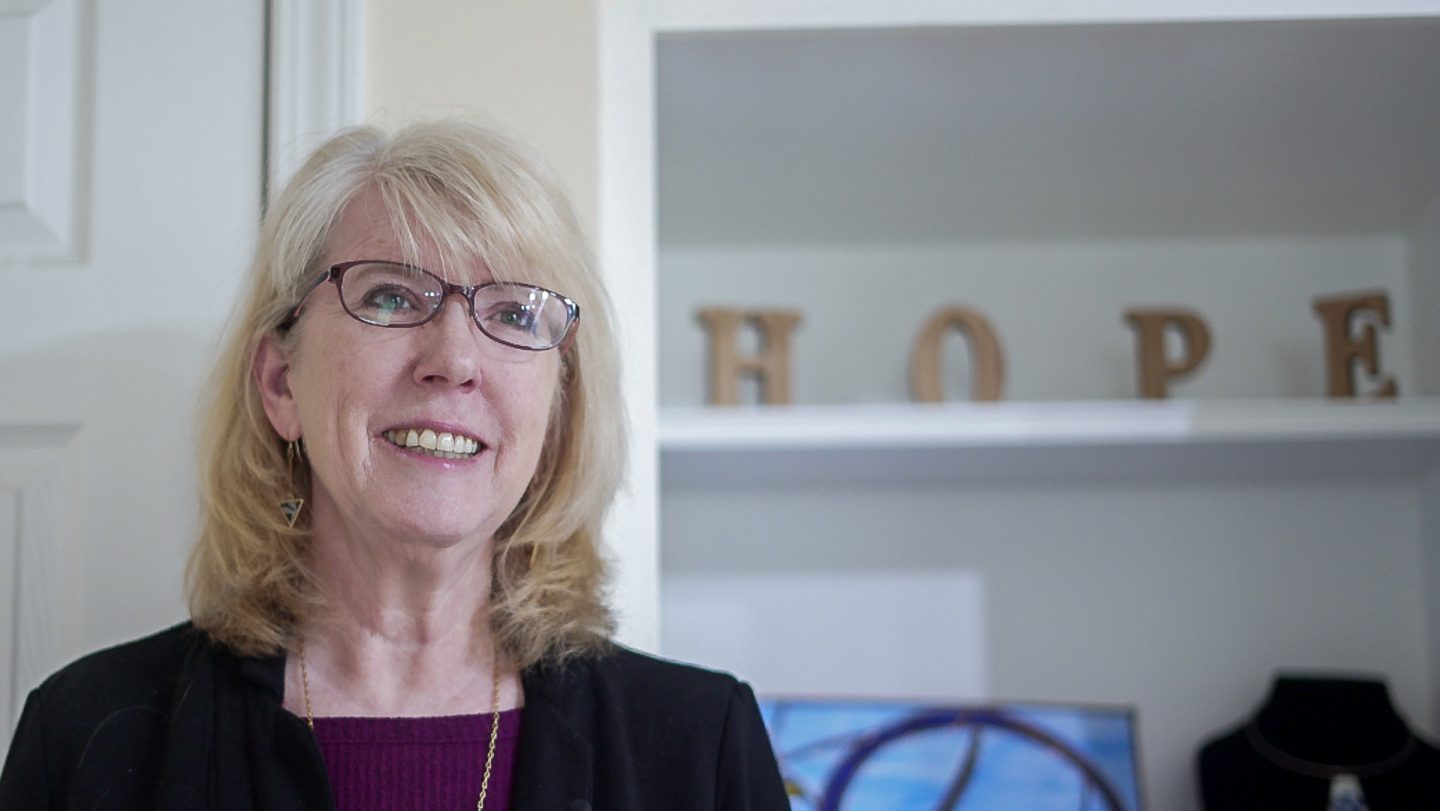
Sue Plumb Takamoto, an American missionary from Asian Access, relocated her family from the metropolitan Osaka-Kobe area to the quiet seaside city of Ishinomaki to support relief efforts.
But then God assured Takamoto her family would be safe. “It didn’t feel like a push as much as it felt like an invitation: If you are willing to join me, I have some really cool plans.”
Taking the plunge, she, her Hawaiian missionary husband Eric, and their four children, settled in Ishinomaki. With the support of the Be One Ishinomaki church, Takamoto soon started Nozomi Project, a social enterprise that makes jewellery out of donated pottery pieces and shards of broken pottery left behind from the tsunami.
Nozomi Project and Megumi Project help women affected by the 2011 disaster by providing them with a sustainable income and community.
She came up with the concept when she was cleaning up a park. Fragments of chipped tableware were strewn across the ground.
At the same time, she came across a magazine article about the Starfish Project, a social enterprise that employs marginalised women in Asia.
Takamoto brought the idea of starting something similar up to the mothers she met at the elementary school her children had started attending, and they were happy to help out.
They got the ball rolling in July 2012. Hundreds of volunteers came to gather the pieces, and several jewellery designers flew in from the US to train the women over 10 days. They opened for business on the second day of October 2012.
Never would any of the mothers expect that six years later in April 2018, the First Lady would wear one of their necklaces to a dinner with the US President in Florida. This year, the First Lady even paid a visit to their studio during the anniversary of the 3.11 triple disaster.
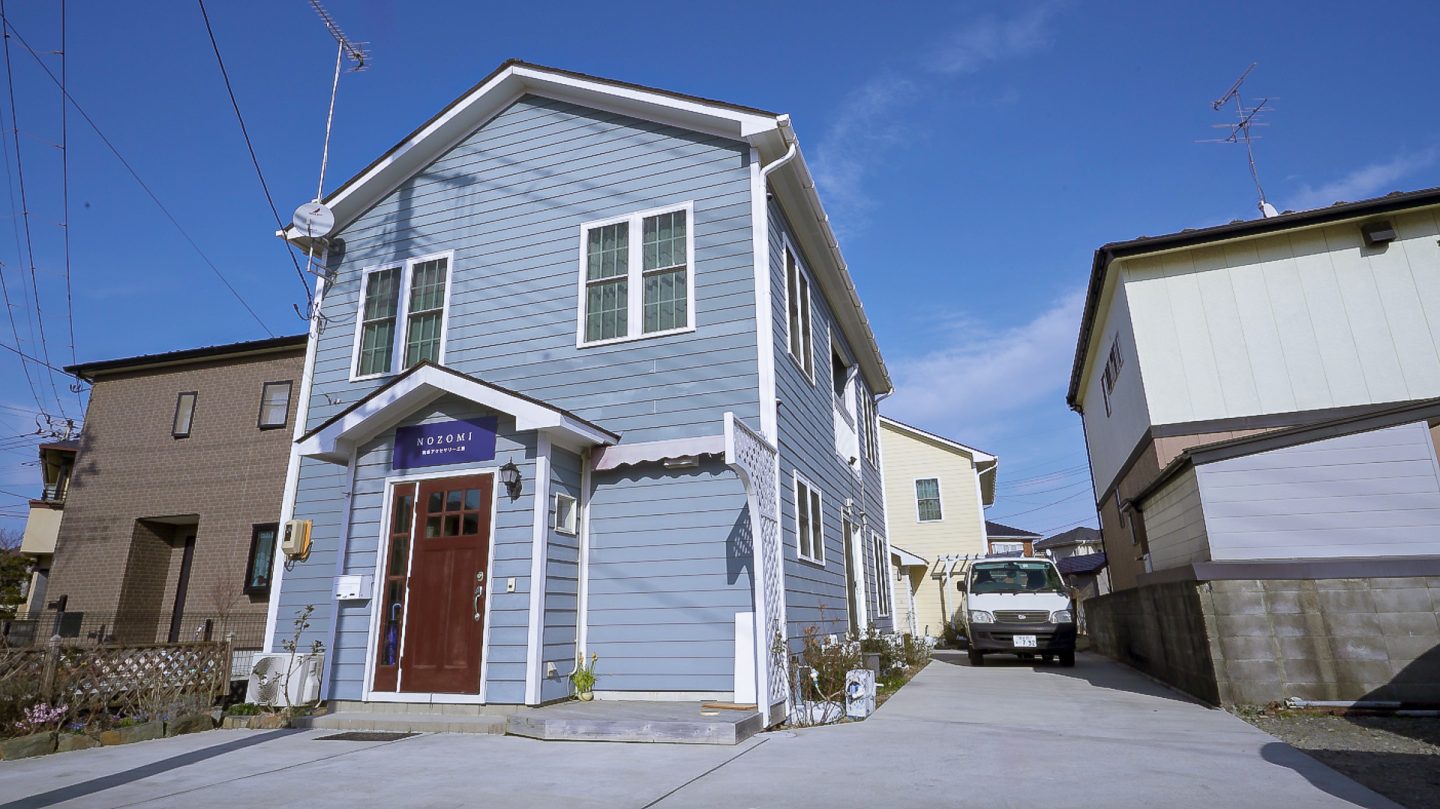
After almost seven years, Nozomi Project is now a widely-known non-profit that has even welcomed the First Lady of Japan this year.
Providing income and friends
Nozomi, which means “hope” in Japanese, is one of the two Christian social enterprises helping women affected by the disaster by providing them with a sustainable income and community.
Having a place to share and learn how to deal with their family, school and children with other women of a similar age, is the favourite part of her job, said Chieko, one of Nozomi’s jewellery makers. It’s a sentiment shared by the other staff. Several women working at Nozomi are single mums – the community has become a safe place where they can share their troubles without judgment.
“I lost my father in the tsunami, my sister-in-law, my niece, my home, my job … Can you help me?”
Part of the profits from Nozomi also goes to non-profits or more recent disaster relief efforts, as part of its principle to model generosity, said Takamoto.
For her, the past seven years have been a testament to 2 Corinthians 5:7, given that she did not come with any corporate experience.
Like Nozomi, Megumi Project is a sister company offering women the space to rebuild their lives and dignity as a community.
Megumi, the Japanese word for “grace”, opened in May 2014. Its founder, Lorna Gilbert, had also come up from Fukuoka to Ishinomaki for relief work. Over her year and a half in the city, she and her husband noticed that while Ishinomaki had become the go-to place for missionaries in Miyagi, there weren’t any missionaries in nearby Onagawa, which had lost one twelfth of its 10,000 residents.
The missionary couple took six months to do a prayer walk around the whole town, asking God “to show us how we can make Christianity relevant to this town”.
With the town undergoing reconstruction, the Gilberts realised that employment was the most pressing issue for the remaining residents. The calamity exacerbated Onagawa’s population decline as the young left for better job opportunities elsewhere.
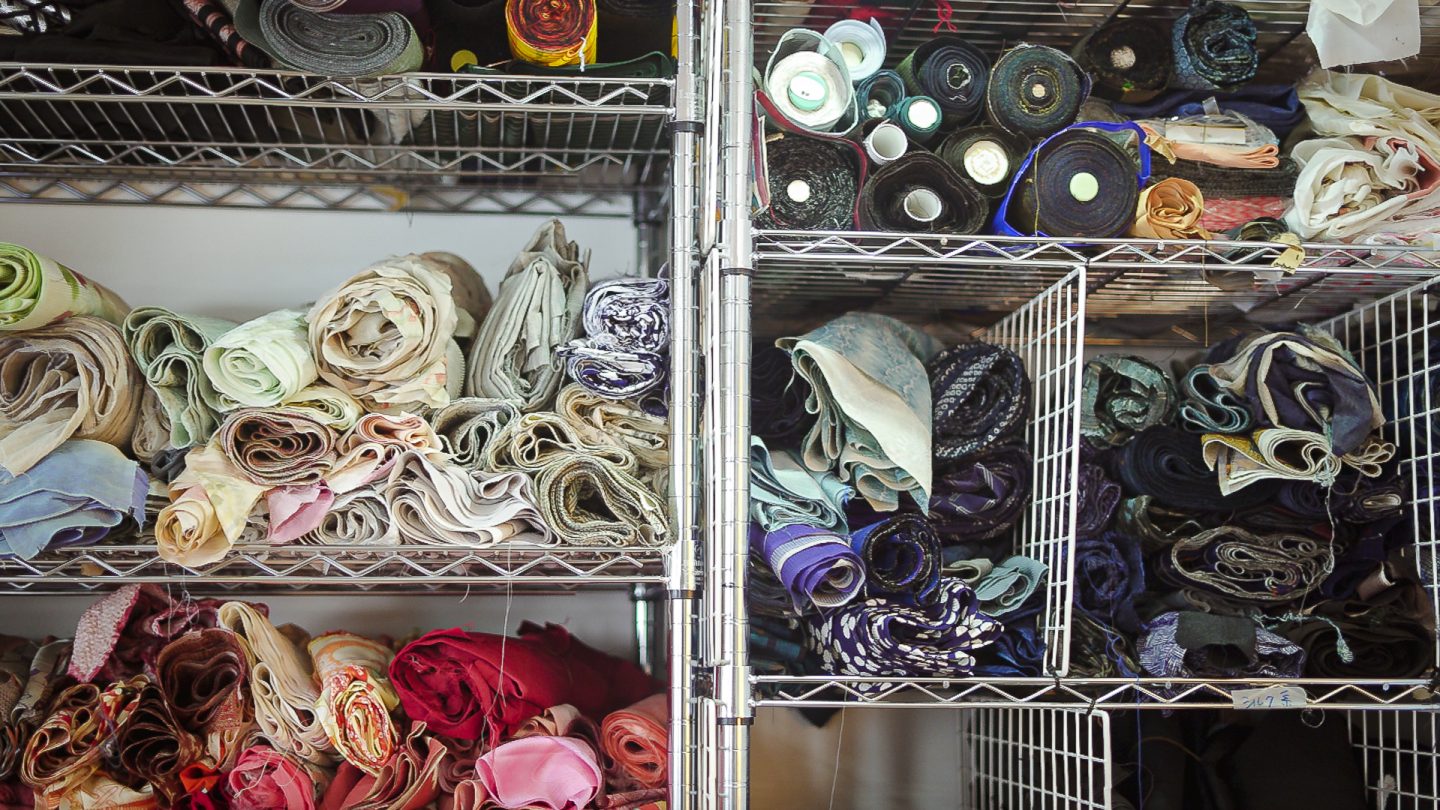
Megumi Project relies on donated kimonos to create their upcycled products. They’ve had a steady supply coming in since individuals around Onagawa heard about the small business.
At first, they thought of opening a Nozomi branch in Onagawa, but then Gilbert’s neighbour appeared.
“I lost my father in the tsunami, my sister-in-law, my niece, my home, my job. I make things from old kimonos as a hobby. You’re a Christian. Can you help me?” she asked.
By then, Christians had become the go-to people to ask for support.
Gilbert didn’t know how to sew, but agreed. With another missionary, the trio started making gift bags out of donated kimonos, building the business up with seed money from Megumi Project and the Evangelical Free Church of America, the association that supports Gilbert and her husband, Andy.
Eventually they moved on to making jewellery and scarves, turning the setup into a full-fledged social enterprise with employees. The town later offered them a shop space in the newly reconstructed downtown train station.
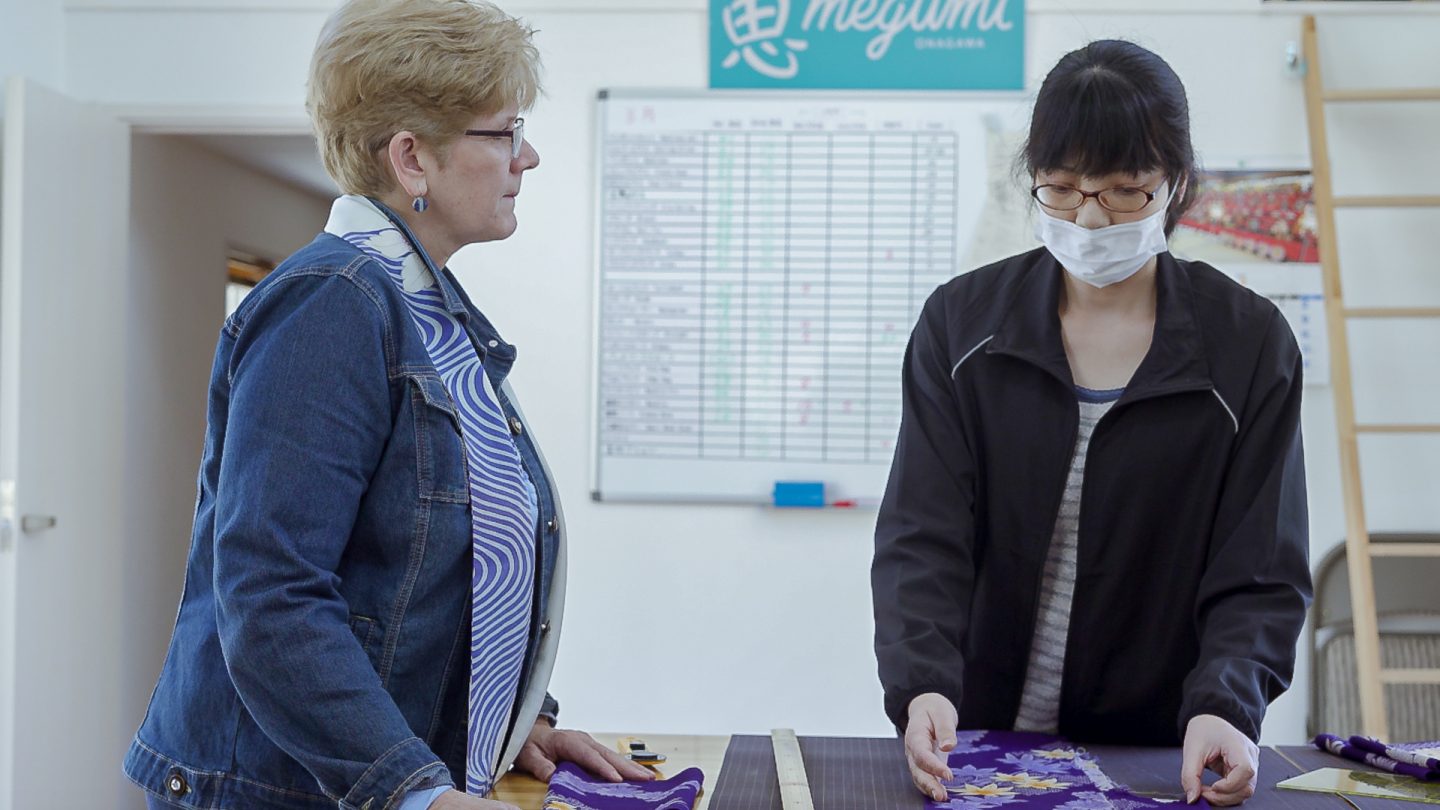
Lorna Gilbert, the founder of Megumi Project and a missionary with the Evangelical Free Church of America, is a mentor of sorts to the women working at Megumi Project, including Yumi Abe (right).
Both Takamoto and Gilbert have found that the businesses are a more effective way of sharing the Gospel than traditional evangelistic methods of inviting people to church or bible studies.
Lorna Gilbert did a six-month prayer walk to ask God “to show us how we can make Christianity relevant”.
As colleagues, the missionaries get to spend most of the week interacting with the women and modelling Christianity to them. Staff, most of them non-Christians, have approached them for prayer, often for a sick child or parent.
The aim of the enterprises isn’t just to provide a modest income for the women, but also to raise their self-esteem levels. Women in Japan are under high expectations to handle both family life and career – if any – perfectly.
Compliments and expressions of gratitude are hard to come by, said Gilbert of the attitudes towards women. So the missionaries try to affirm them at work and offer a flexible work schedule.
Yumi Abe, one of the seamstresses at Megumi, said she appreciated her current position very much. Her last “miserable” job at a factory saw her employers often kicking up a big fuss when she needed to take time off for her children. Here, she could have proper summer vacation plans with her kids.
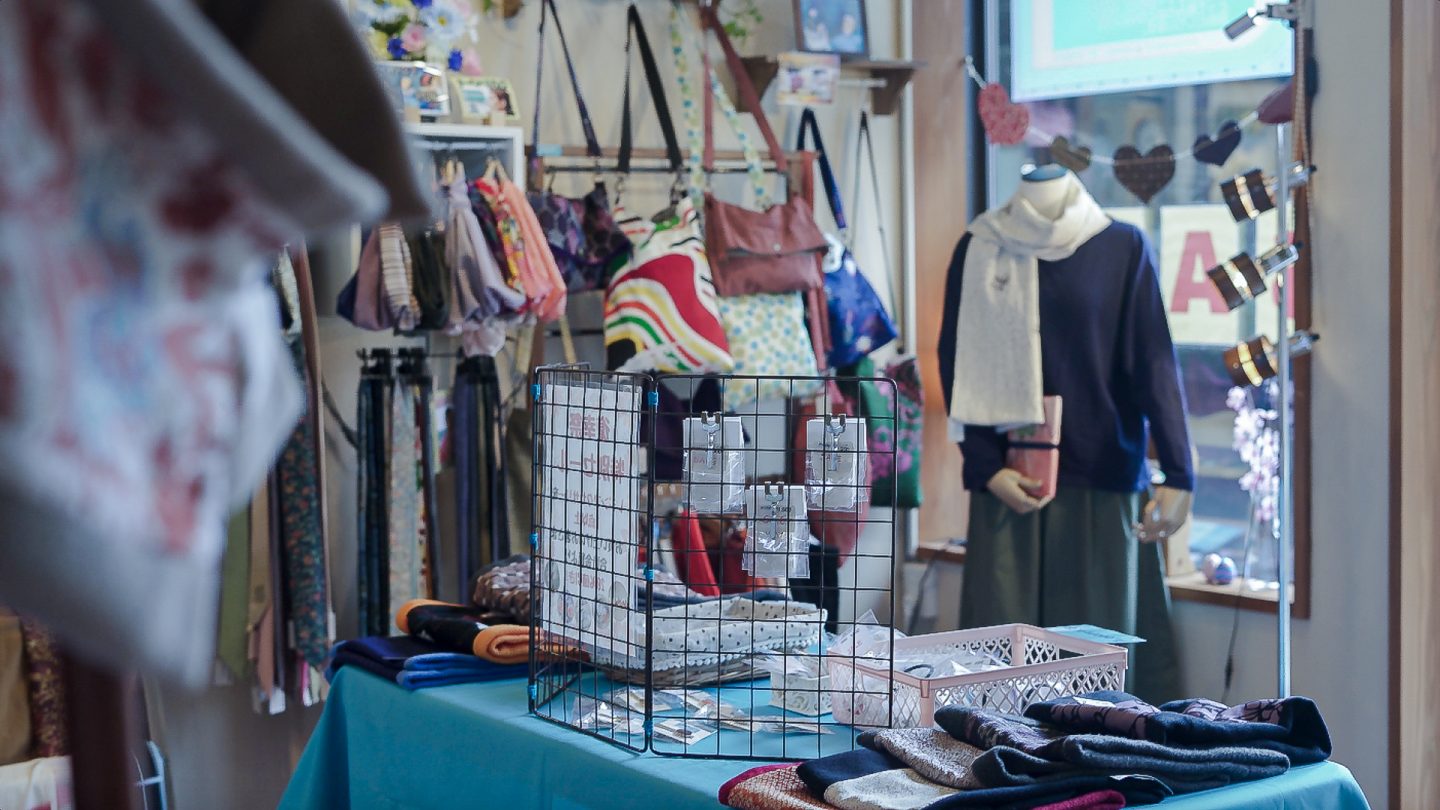
Megumi Project has a tiny store housed inside a cabin-like strip mall along the downtown area of Onagawa, which was rebuilt after the disaster.
Acknowledging God
None of the current batch of employees from either Nozomi or Megumi have confessed to know Christ – although two from Nozomi are attending bible study, and four of their former employees were baptised – but there have been several exceptional encounters.
Gilbert recounts the end of the first year when she was trying to congratulate the team on a job well done. She told them: “We were successful this year because you guys did great.”
“And my non-believing neighbour looked at me and said, ‘No, that’s not why we’re successful. It’s because there are four of us, not three. Jesus is right in the middle.’”
The women were being discipled without bible studies or sermons. “I’ve seen hearts changed before their minds have caught up with it.”
Gilbert believes it’s “not far before the women really understand that Jesus has been the answer all along”.
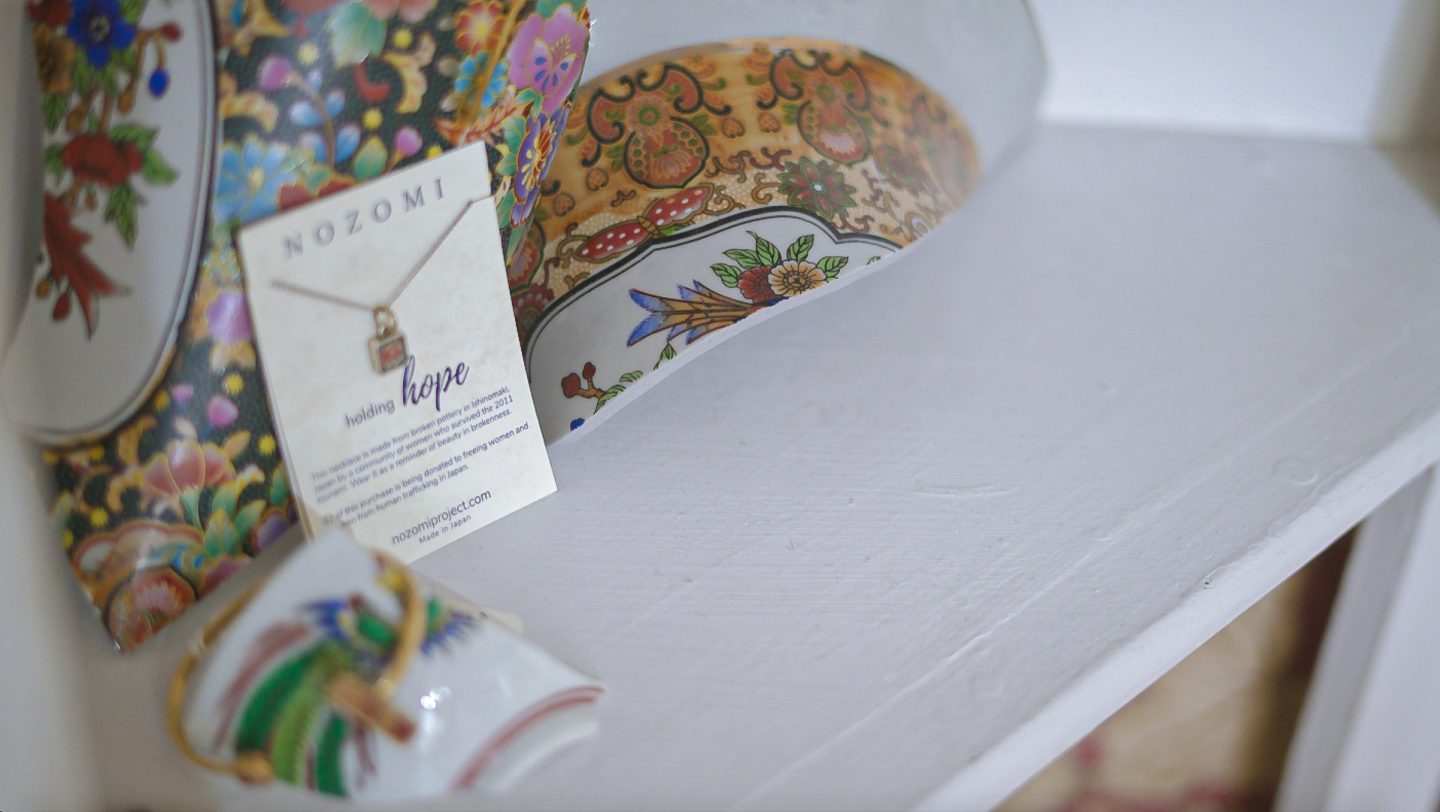
Nozomi started out with the mums Takamoto met at her daughter’s elementary school.
And if they don’t come to confess Christ as their Lord, these women would at least be more open now to their children exploring the faith, Gilbert added, which is a huge step forward since Christianity has often been viewed with suspicion in the country.
Yet, sustaining a small charitable outfit in a developed country like Japan brings it limitations as to how much help can be offered.
Nozomi and Megumi both pay their staff between 800 and 1,000 yen per hour (SGD$10-12) each – managers get more – which is around the minimum wage. They have to keep their status as part-time employees as well, as the companies aren’t able to afford benefits for full-timers. Still, there are times when the companies are in the red.
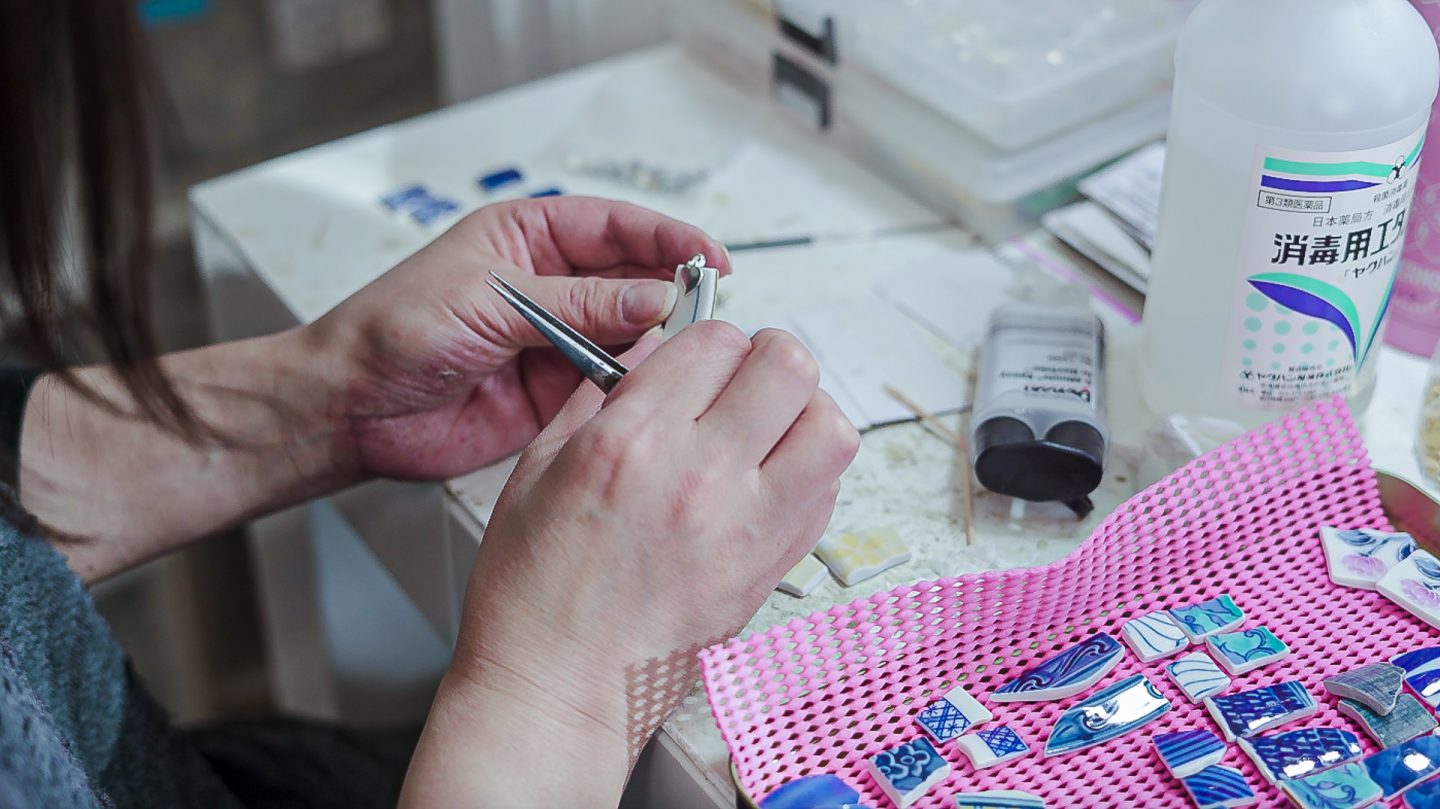
Nozomi and Megumi both pay their staff between 800 and 1,000 yen per hour (SGD$10-12) each – managers get more – amounts that hover around the minimum wage. Some years, they are still in the red.
Transitions have been another tough condition to deal with. Gilbert returns to the United States in July this year to look after her elderly mother, which means Megumi will lose its permanent Christian presence, while Takamoto has been praying for the past two years for a successor so that she can focus on a more pastoral role in Nozomi.
But for the locals to see two faith communities through the ruins of a disaster has provided a divine opportunity to reflect the nature of God’s Church (1 Corinthians 12:25), Takamoto said.
“God can do good work through one person or team, but He can do a much better work through the collaboration of different churches and Christians.”
We are an independent, non-profit organisation that relies on the generosity of our readers, such as yourself, to continue serving the kingdom. Every dollar donated goes directly back into our editorial coverage.
Would you consider partnering with us in our kingdom work by supporting us financially, either as a one-off donation, or a recurring pledge?
Support Salt&Light

